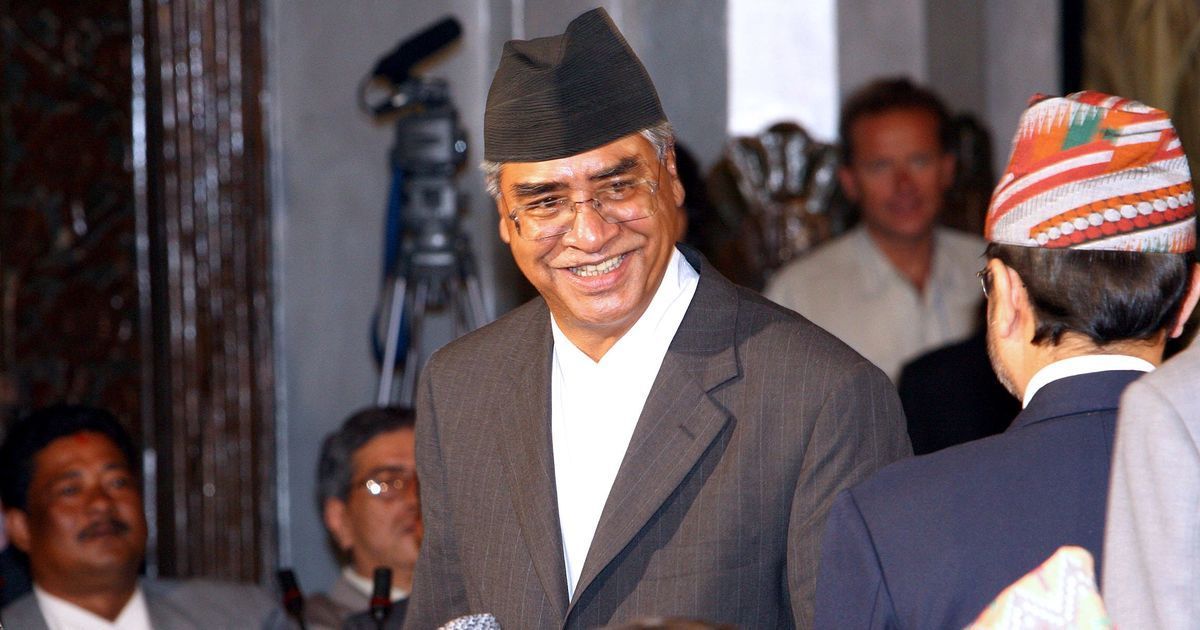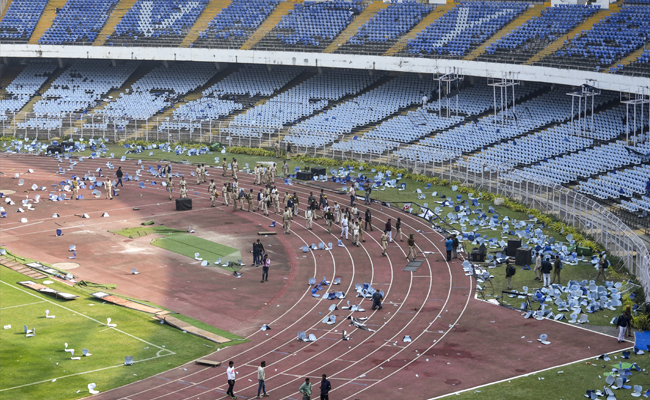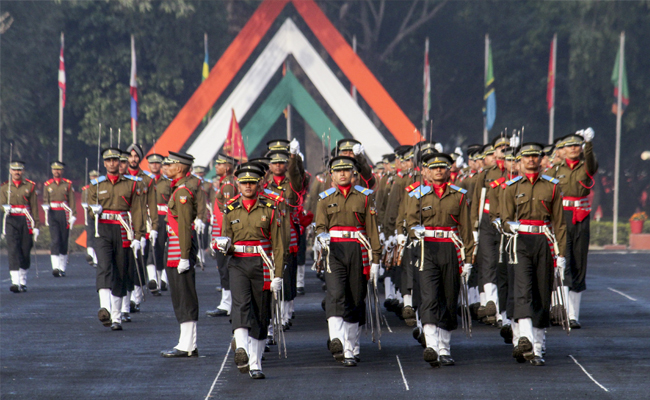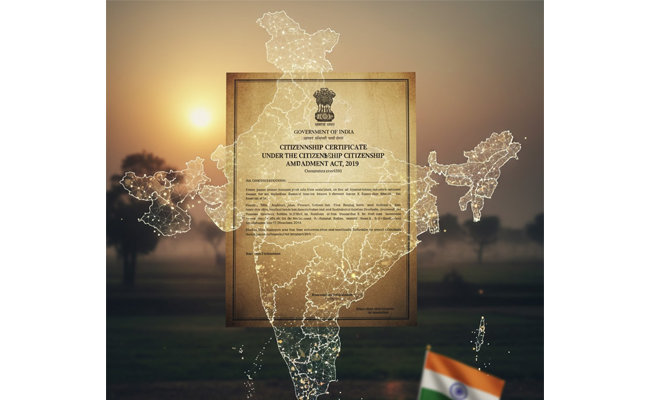Kathmandu, Jul 18: Nepal's new Prime Minister Sher Bahadur Deuba on Sunday comfortably won a vote of confidence in the House of Representatives, ensuring continuity of the twice dissolved lower house of Parliament for the remaining duration.
Deuba, the 75-year-old chief of the Nepali Congress who was appointed as the prime minister as per the Article 76(5) of the Constitution on July 12 following Supreme Court's intervention, secured 165 votes in the 275-member house on Sunday.
A total of 136 votes were required for Deuba to win Parliament's confidence.
As many as 249 lawmakers participated in the voting process and 83 of them voted against Deuba while one lawmaker remained neutral.
"I hereby declare that the motion of the vote of confidence tabled by Prime Minister Sher Bahadur Deuba has been endorsed with a majority, House Speaker Agni Sapkota announced.
The proposal for the vote of trust was registered in the Parliament Secretariat on Sunday, the very first day of the session of the reinstated lower house.
Previously, Deuba has served as the prime minister on four occasions; first from 1995 to 1997, then from 2001 to 2002, again from 2004 to 2005, and from 2017 to 2018.
Prime Minister Narendra Modi congratulated Deuba on his success.
"Congratulations Prime Minister @DeubaSherbdr and best wishes for a successful tenure. I look forward to working with you to further enhance our unique partnership in all sectors, and strengthen our deep-rooted people-to-people ties," Modi tweeted.
Deuba took the oath of office and secrecy for a record fifth time on July 13, a day after a five-member Constitutional Bench of the Supreme Court led by Chief Justice Cholendra Shumsher Rana reinstated the dissolved House of Representatives for the second time in five months.
President Bidya Devi Bhandari had dissolved the lower house for the second time in five months on May 22 at the recommendation of Prime Minister K P Sharma Oli and announced snap elections on November 12 and November 19.
Deuba had staked the claim to form the government as per the Article 76(5) with the support of 149 lawmakers but President Bhandari had invalidated the claim, along with that made by Oli saying both claims were insufficient.
After the apex court's intervention, President Bhandari had summoned the meeting of both the Houses of the Parliament on Sunday.
In the lower house of Parliament, the ruling Nepali Congress (NC) has 61 members while its coalition partner CPN (Maoist Center) has 48 members, excluding Speaker Sapkota.
The main Opposition CPN-UML, which is Oli's party, has 121 members in the lower house, the JSP has 32 members and the other three fringe parties have a member each. There is an independent lawmaker as well.
The Nepali Congress, CPN Maoist Centre and Janata Samajbadi Party-Nepal lawmakers voted in favour of Deuba. The Thakur-Mahato faction of the JSP-N also decided to support Deuba at the last minute.
Close to a dozen lawmakers of the UML left the House after Deuba's victory was certain. However, the remaining 22 lawmakers, including Madhav Kumar Nepal himself, voted for Deuba.
Interestingly, as many as 8 lawmakers from the Oli faction voted in Deuba's favour. All in all, around 30 lawmakers from the opposition party defied the party whip to vote against Deuba.
Former prime minister and senior leader of the Communist Party of Nepal (Unified Marxist Leninist) Jhalanath Khanal, who is undergoing treatment at a hospital in New Delhi, had issued a statement, asking his party's lawmakers to vote in favour of Deuba.
With his victory, Deuba is set to remain prime minister for a year and a half, until elections are held.
Nepal plunged into a political crisis on December 20 last year after President Bhandari dissolved the House and announced fresh elections on April 30 and May 10 at the recommendation of Prime Minister Oli, amidst a tussle for power within the ruling Nepal Communist Party (NCP).
On February 23, the apex court reinstated the dissolved House of Representatives, in a setback to embattled Prime Minister Oli who was preparing for snap polls.
Congratulations Prime Minister @DeubaSherbdr and best wishes for a successful tenure. I look forward to working with you to further enhance our unique partnership in all sectors, and strengthen our deep-rooted people-to-people ties.
— Narendra Modi (@narendramodi) July 18, 2021
Let the Truth be known. If you read VB and like VB, please be a VB Supporter and Help us deliver the Truth to one and all.
New Delhi (PTI): Three members of a family were found dead inside their home in southeast Delhi's Kalkaji on Friday, with police suspecting it to be a case of suicide, officials said.
Police said the incident came to light around 2.47 pm when a police team reached the premises to execute a court order related to possession of the property. When repeated knocks went unanswered, the staff used a duplicate key to open the door.
Inside, officers found Anuradha Kapoor (52) and her sons, Ashish Kapoor (32) and Chaitanya Kapoor (27), hanging from the ceiling, Deputy Commissioner of Police (Southeast) Hemant Tiwari said in a statement. All three were declared dead.
A handwritten note was recovered from the room, suggesting the family had been struggling with depression.
"The handwritten note indicates emotional distress faced by the family due to which the family may have taken the extreme step," the officer said.
The bodies have been shifted to the All India Institute of Medical Sciences (AIIMS) mortuary for post-mortem and other legal formalities under Section 194 of the Bharatiya Nagarik Suraksha Sanhita (BNSS), police said.
Residents of the neighbourhood said they were shocked to learn about the deaths, adding that the family kept largely to themselves.
Pankaj Kashyap, a resident of Girinagar, said he learnt about the deaths while leaving for work. "I live and work here and was leaving for work when I saw many people standing outside and talking. That is how I got to know that three people had committed suicide. I also saw several police vehicles outside, but I do not know much beyond that," he said.
Baldev, another neighbour, said the family had been living in the newly constructed house for around two years. "We only knew that a mother and her two children lived there. They had moved into the newly built house around two years ago. We did not interact much with them. Today we heard that all three have committed suicide, and whatever we know is based on what people here are saying," he said.
Another neighbour, Ramesh Kumar, claimed the family had earlier attempted suicide.
"About fifteen to twenty days ago, the two sons in the family had attempted suicide and police and ambulances had come. That was when I first got to know who they were. I do not recognise them by face, but we saw the ambulances and police take the two sons that day. Today again we saw ambulances and police arriving, so everyone came out to see what had happened. I do not know how long they had been living here, but this is all we know," he said.
Police said they are examining the family's financial condition, social circumstances, and other factors that may have contributed to the incident. Further investigation is underway.





